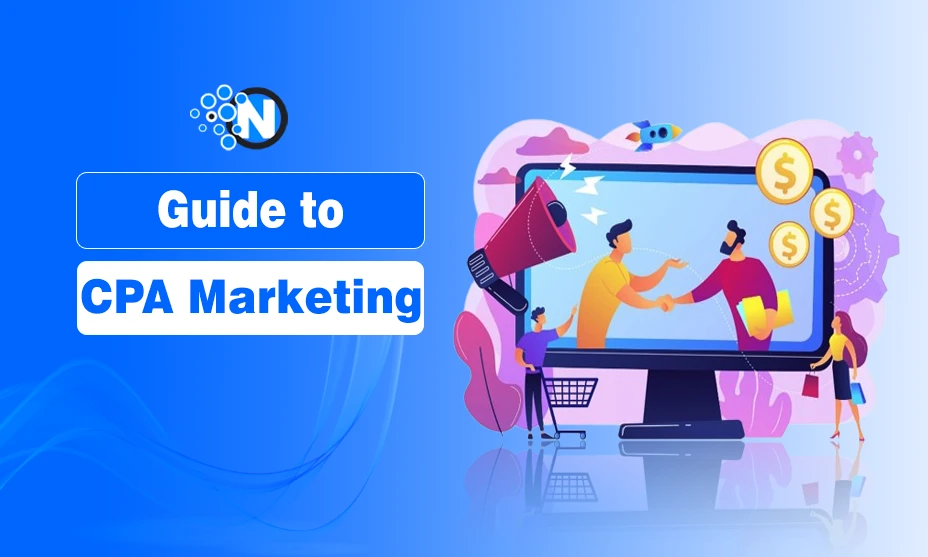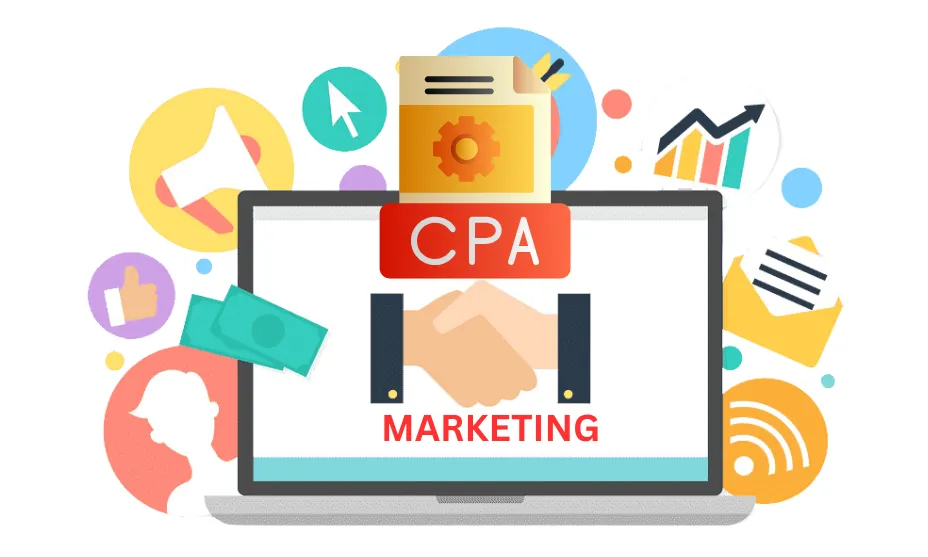The Ultimate Guide to CPA Marketing in 2025

CPA marketing, also known as Cost Per Action marketing, has emerged as an effective strategy in the ever-evolving digital marketing landscape. Unlike other marketing methods that demand upfront payments to market your brand to increase sales, this one demands payment after the sale at your specified rate.
In this comprehensive guide, I will take you through the ins and outs of CPA marketing in 2025, covering everything from the fundamentals to advanced strategies to help you stay ahead of the curve.
Let’s start!
What is CPA Marketing?
Cost-per-action or CPA marketing is based on the idea that businesses should compensate those who perform desired activities on their behalf, such as subscribing to a newsletter, completing a form, or making a purchase.
CPA marketing guarantees that marketers only pay when the desired action is taken, as opposed to the impression or click-based models used in traditional advertising. It is just like affiliate marketing businesses of all sizes use to reach a wider audience.

How Does CPA Marketing Work?
In the world of CPA marketing, publishers play a vital role. These publishers, often individuals or companies with a strong online presence, promote CPA offers to their audience.
When a user from their audience completes the desired action, both the publisher and the advertiser earn a share of the profit. This incentivizes publishers to promote offers that resonate with their audience strategically.
Getting Started with CPA Marketing
Setting Clear Objectives
It is crucial to have well-defined goals before beginning a CPA marketing campaign. Do you want to boost visitors to your site, potential customers, or revenue? The offerings you make and the channels you use will both benefit from having clear objectives in mind.
Choosing the Right CPA Network
Selecting the right CPA network can significantly impact your success. Research and compare different networks, considering factors like reputation, the range of offers, payment terms, and available support. A reputable CPA network provides a solid foundation for your campaigns.
Navigating CPA Offers
Types of CPA Offers
CPA offers come in various forms, including email submissions, trial sign-ups, and cost-free trials. Each offer type targets a specific action that users can take. Understanding the nuances of different offer types empowers you to effectively tailor your campaigns to your audience.
Selecting Profitable Offers
Not all CPA offers are created equal. Some may yield higher payouts, but conversion rates might be lower. It’s crucial to strike a balance between the payout and the likelihood of conversion. Thoroughly research and test different offers to identify the ones that align with your goals.
Keyword Research for CPA Campaigns

The Role of Keywords
Keywords remain a fundamental element of online marketing, including CPA campaigns. Research relevant keywords that align with your offers and resonate with your target audience. These keywords will serve as the foundation for your content, ad copy, and landing pages.
Tools for Effective Keyword Research
You can find out more by using keyword research tools. You can find keywords with low competition and high search volume with the help of tools like SEMrush and Ahrefs. Marketing campaign optimization is easier with the help of these tools.
Creating High-Converting Landing Pages
Designing User-Friendly Landing Pages
Landing pages are the gateways to your CPA offers. Design them with user experience in mind, ensuring they load quickly and provide a seamless experience across devices. A clutter-free layout, easy navigation, and clear value proposition can significantly boost conversions.
Crafting Compelling Call-to-Actions
Your call-to-action (CTA) is the tipping point between a visitor and a conversion. Craft CTAs that are action-oriented, concise, and create a sense of urgency. Experiment with different CTA placements and wording to find what resonates best with your audience.
Mastering Ad Copy and Creatives
Writing Persuasive Ad Copy
Ads that have captivating copy are what really get people to click. Make use of enticing language, emphasize benefits, and resolve problems. A compelling advertisement will strike a chord with the target demographic and encourage them to take action.
Designing Eye-Catching Creatives
Visual content captures your attention and reinforces your message. Design eye-catching creatives that align with your brand and resonate with your target audience. Incorporate images, videos, and graphics that evoke emotions and convey your offer’s value.
Diving into Targeting and Segmentation
Importance of Audience Targeting
When it comes to cost-per-action (CPA) marketing, narrowing down your target client is crucial. Your advertising should cater to your target audience by taking into account their interests, demographics, and behavior. The higher your conversion rate, the more fine-tuned your targeting.
Segmenting Your Audience for Success
Segmentation takes targeting a step further by dividing your audience into smaller groups based on specific characteristics. This enables you to create hyper-focused campaigns that cater to each segment’s unique preferences and needs.
Optimizing Campaigns for Success
A/B Testing Strategies
A/B testing involves experimenting with different elements of your campaigns to determine what works best. Test variables like ad copy, creatives, headlines, and even landing page layouts. Continuous testing and optimization lead to refined, high-converting campaigns.
Continuous Monitoring and Optimization
Successful CPA marketing requires ongoing monitoring and adjustment. Regularly analyze key metrics such as click-through, conversion, and cost per acquisition. Use these insights to refine your campaigns and allocate your budget effectively.
Harnessing the Power of Social Media
CPA Marketing on Social Platforms
CPA advertising has a huge potential audience on social media. The demographics of the audience and the dynamics of interaction vary between platforms. It is beneficial to create compelling content that will resonate with the platform’s users and adapt your advertising accordingly.
Leveraging Influencer Collaborations
Influencers wield significant influence over their followers’ decisions. Collaborating with influencers relevant to your niche can amplify your CPA marketing efforts. Their endorsement adds authenticity and expands your reach to a more targeted audience.
The Mobile Advantage in CPA Marketing
Mobile-Friendly Campaigns
Mobile devices dominate online activities. Ensure your campaigns are optimized for mobile users, from responsive landing pages to mobile-friendly ad formats. A seamless mobile experience can enhance conversions and user satisfaction.
In-App Advertising for Conversions
In-app advertising targets users within mobile applications. This approach leverages the immersive nature of apps to engage users and drive conversions. As users spend more time within apps, in-app advertising presents a compelling opportunity.
Scaling Your CPA Campaigns
Strategies for Scaling Up
Once you’ve established successful campaigns, scaling becomes the next objective. Increase your budget strategically, expand your reach to new audiences, and replicate what’s working. However, scaling requires careful planning to maintain performance.
Avoiding Common Pitfalls
Scaling comes with challenges, including potential performance dips and overspending. Monitor your campaigns closely during scaling phases, and be prepared to make adjustments to keep your ROI intact.
Tracking and Analytics in CPA Marketing
Importance of Data Tracking
Data is the lifeblood of effective CPA marketing. Implement tracking mechanisms to gather insights into user behavior, conversion paths, and campaign performance. This data-driven approach allows you to make informed decisions.
Analyzing Key Metrics for Insights
Campaign performance may be measured in various ways, including conversion rate, click-through rate, and cost per conversion. These metrics need regular inspection in order to identify patterns and optimization opportunities.
Staying Compliant and Ethical
Navigating Regulatory Guidelines
Building trust with your audience requires acting ethically and legally. Learn the ins and outs of rules like GDPR and FTC recommendations. Make sure your campaigns don’t violate users’ privacy and are in line with best practices
Building Long-Term Trust with Your Audience
Building a devoted following is crucial to the success of any CPA advertising campaign. Deliver what you offer and enlighten your audience with valuable information. Gaining someone’s confidence leads to more purchases and recommendations.
Innovations Shaping CPA Marketing

AI and Automation Trends
Artificial intelligence and automation are transforming digital marketing, including CPA campaigns. AI-powered tools can optimize campaigns in real-time, enhance audience targeting, and streamline repetitive tasks.
The Rise of Virtual Reality in Advertising
Virtual reality (VR) introduces immersive advertising experiences. While not mainstream yet, VR offers exciting possibilities for engaging users in interactive and memorable ways. Stay attuned to VR developments and consider their potential in your strategy.
Future-Proofing Your CPA Strategy
Anticipating Industry Changes
The digital landscape evolves rapidly. Stay ahead by staying informed about industry trends, algorithm updates, and emerging technologies. An adaptable strategy positions you to capitalize on new opportunities.
Continuous Learning and Adaptation
In CPA marketing, you must always be flexible and open to new strategies. You may learn what’s new in your field by participating in forums, webinars, and courses. Maintain your competitive edge by welcoming change and always striving to improve your talents.
How to Calculate CPA?
Calculating CPA involves a simple formula considering the total expenses incurred and the number of new customers acquired within a specific period. Here are the steps to calculate CPA:
1. Collect Sufficient Data:
Gather data about the expenses incurred during the selected period, including advertising costs, agency fees, and operational expenses. Determine the total number of new customers acquired during the same period.
2. Apply the Formula:
The formula for calculating CPA is CPA = Total Expenses / Number of New Customers. Divide the total expenses by the number of new customers to get the CPA value.
3. Evaluate the Results:
Compare the calculated CPA with previous periods to analyze trends. A rising CPA might indicate overspending, while a declining CPA could suggest efficient marketing strategies. Remember that a company’s comfort level with CPA depends on its business type and available revenue.
Continued Tracking:
CPA should be tracked on a regular basis, such as quarterly or annually. You may want to combine CPA with additional metrics like CLV to get a complete picture of your marketing effectiveness.
Final Words
CPA marketing is an exciting and lucrative way to increase online conversions. If you take the time to learn the fundamentals, practice optimization strategies, and keep tabs on the market.You’ll be well-equipped to succeed.
Strategic planning, innovative implementation, and data-driven decision-making are all essential ingredients in the never-ending quest for CPA marketing success. The field of CPA marketing is a dynamic one, full with exciting new potential and, of course, new obstacles, every day.




